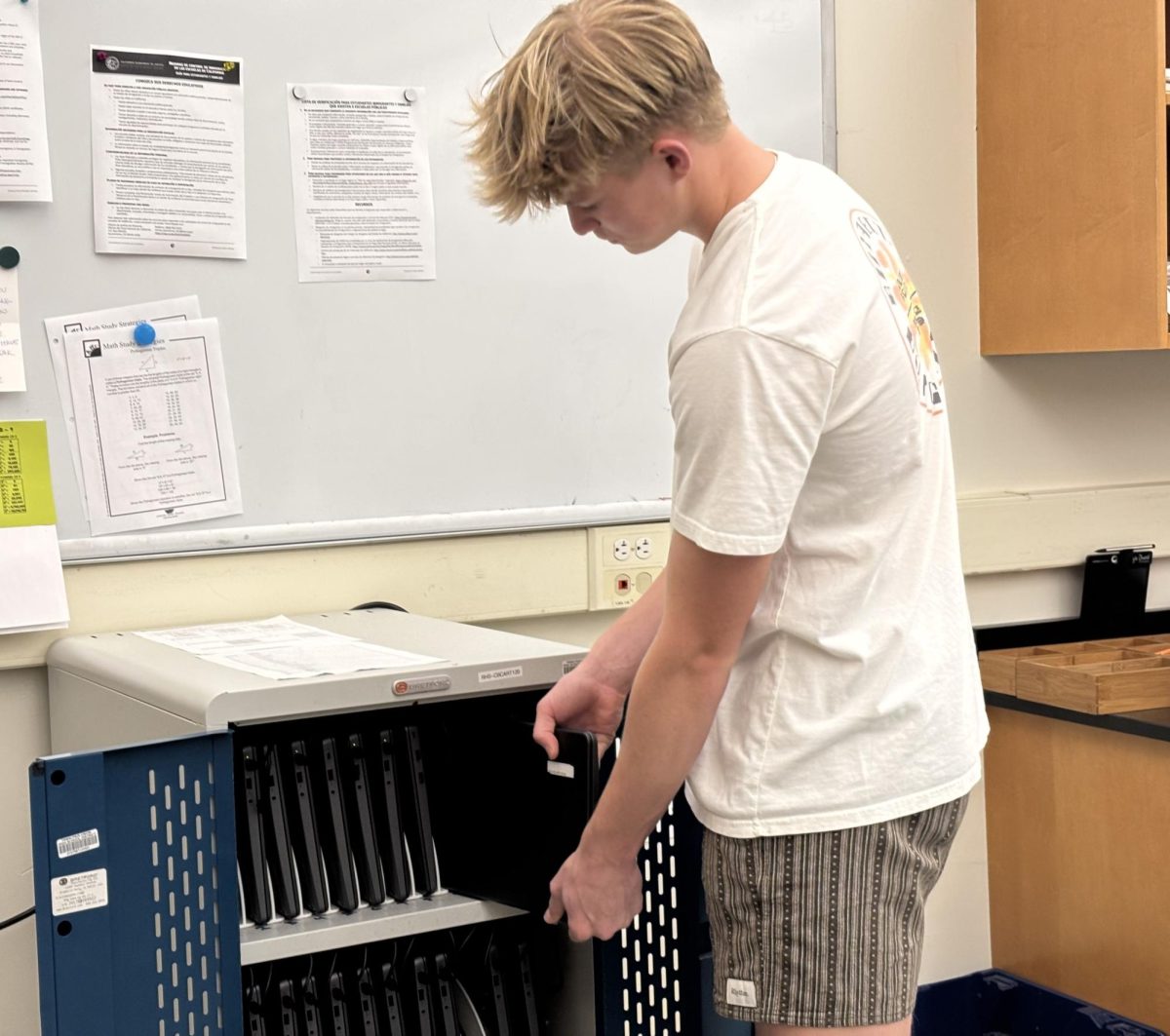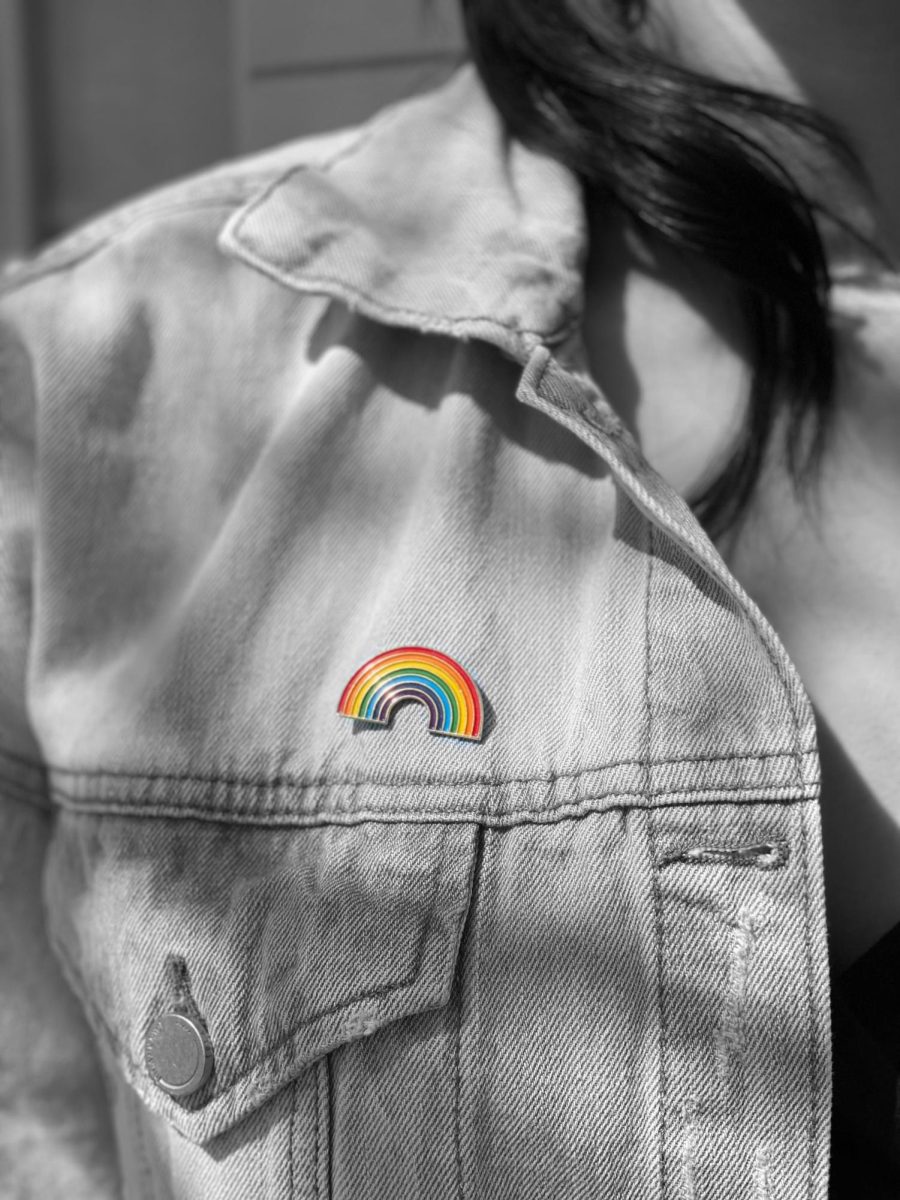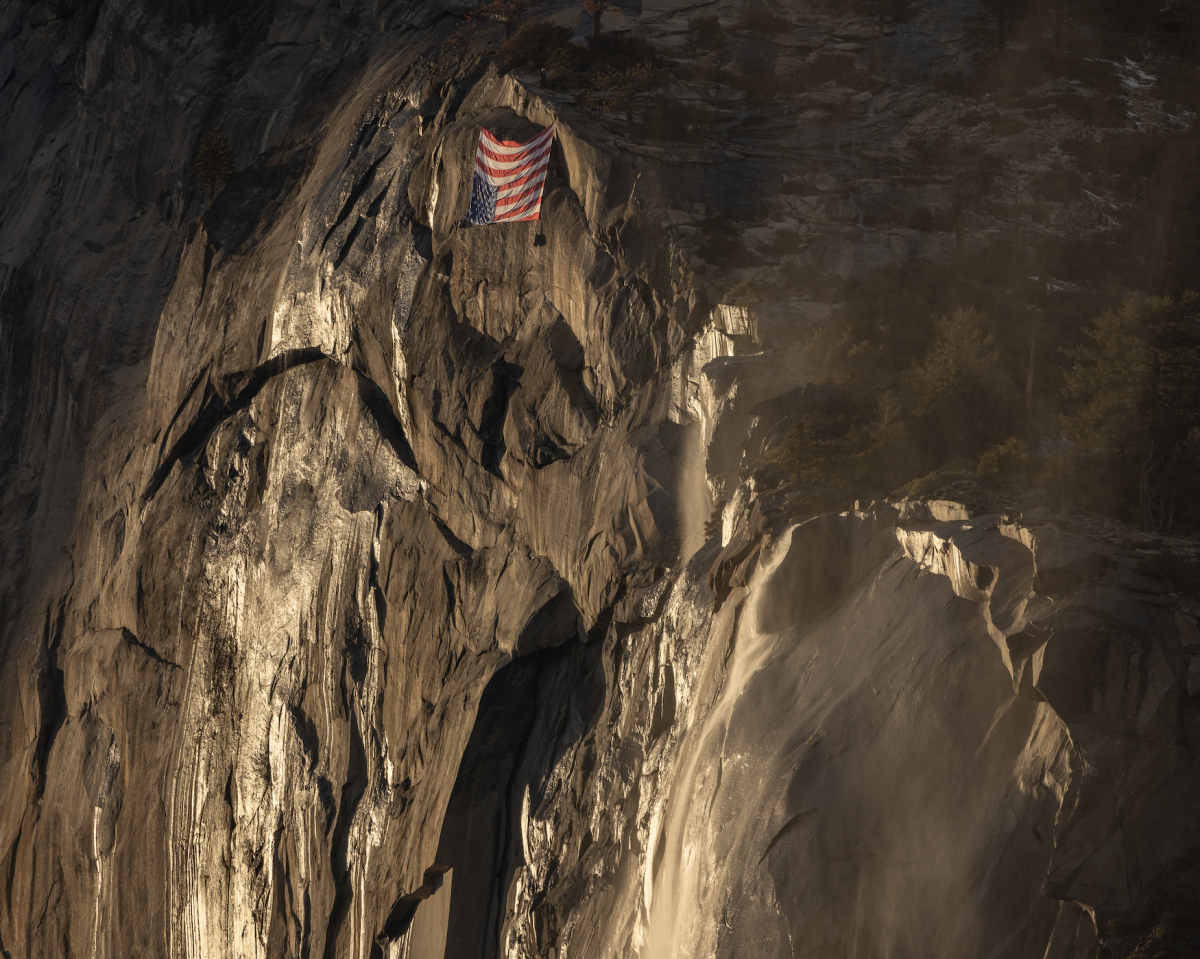“Let’s throw bologna at the wall and see what sticks,” said guest director Will Caldwell to drama students as he bounced a red rubber ball across the stage. “That is a saying, right?”
The actors laughed, shaking their heads.

“Well, now it is,” Caldwell said.
For the past six weeks, the cast of the EPiC’s upcoming production, In A Nutshell, has been brainstorming ideas and collaboratively writing its own play.
Nov. 4-7, the drama department will present the production for the first time, modeling it after Too Much Light Makes the Baby Go Blind, an interactive format created by Neo-futurists founder, Greg Allen.
In a Nutshell will feature the actors attempting to perform 30, unrelated, self-written plays in less than an hour.
According to Erik Berkowitz, the artistic director of the drama department, the play’s unique format will allow the production to be interactive with the audience.
“Each play has its own timing and pacing, but the whole thing is rushed and moving so they can beat the time,” Berkowitz said.
There will be numbers hanging along a laundry line numbered 1-30, which correspond to the individual plays the actors will be performing, according to Berkowitz.
“The audience calls out numbers, and based on what [the actors] hear, the actors start running the performance piece with that number,” Berkowitz said.
Because of this impromptu structure, the actors will be unaware of the order in which they will perform the plays until they are actually in the show. Once the actors hear their number called out, they will have to quickly grab the props and actors specified for the playlet.
According to Caldwell, another feature of the interactive format is that some audience members will be called up to the stage and asked to move around––they’ll be able to talk to the actors.

“A lot of theater has that fourth wall. You sit in silence and watch a play and clap for your friends. In [In a Nutshell] people are going to be pulled up on stage, asked questions. We might even go outside in the parking lot and light stuff on fire. It is the type of experience that only a theater show can give you,” Caldwell said.
The individual plays are written by the cast members and production crew. Caldwell guided the drama students through the writing process using skills he acquired from his profession as an actor and writer for the San Francisco Neo-futurists, a branch of the Neo-futurist theater company that originated in Chicago in 1989.
The Neo-futurist style takes a unique approach to theater, embracing complete reality rather than a fictional plot, according to Caldwell.
“With this type of work we are trying to make you feel every conceivable emotion that you possibly can,” Caldwell said.
Junior castmember Gaby McNell said that the actors will experience a new vulnerability, expressing their own beliefs on stage, rather than reading from a script.
“One of the rules of Too Much Light is that we can’t lie. It’s all based on our personal lives,” McNell said. “Everything is honest.”
According to senior actor Claire Karner, the cast responded well to the new type of acting, gaining a new perspective on theater.
“All that’s left after stripping away character and script is really what is true to you and what is important to you,” Karner said.

The plays are extremely honest and diverse, according to McNell. While some are humorous, others are dark. While some are group pieces, others are monologues. The one thing that ties them all together is that the themes are pulled from the actors’ lives.
“The things that we have been writing about are things that we haven’t talked about, that we haven’t shared with a group of people before,” Karner said.
According to senior Carina Casissa, it was a majority of the cast’s first time playwriting. Though they struggled to think of content at first, Caldwell inspired them by bringing in guest artists, leading writing exercises, and simply asking them about their days.
The cast as a whole expressed extreme enthusiasm for the production, as it is Redwood’s first time presenting this self-written play.
“It is going to be really great to see these kids creating varied, dynamic, fully-formed work. I think a lot of people will be very surprised at what could come out of a high school environment,” Caldwell said.





